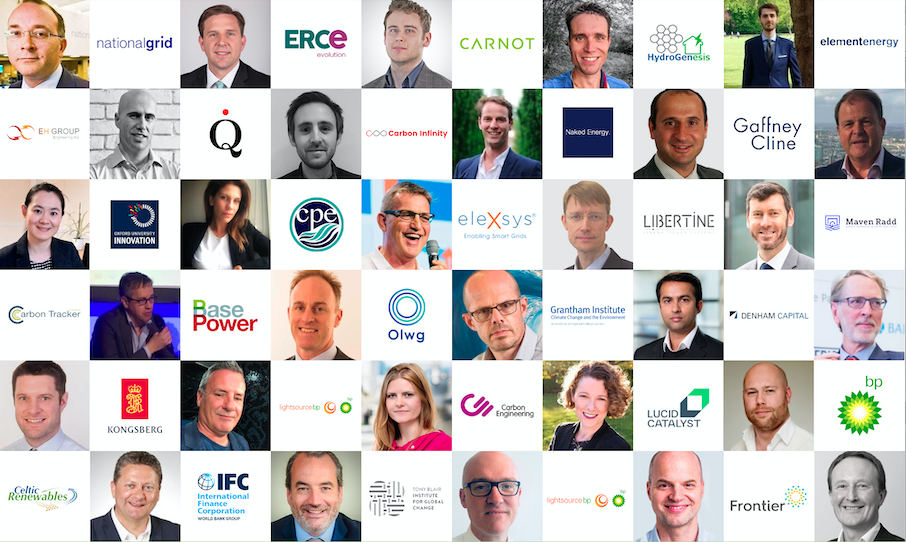Household name brands through to business-to-business companies are increasingly announcing net zero targets, sometimes with very ambitious timescales. However, while most public debate relates to domestic decarbonisation, the fact is that net zero targets are tough for energy intensive businesses, especially for those that use a great deal of heat.
Putting together a realistic net zero strategy that doesn't just impose a high tax on the business requires some careful thought and planning. Here are BasePower’s five key tips on how to approach a net-zero strategy.
1 . Change what’s under your control
In case we need reminding, Scope 1 emissions are direct fuel use for heat, vehicles and refrigerants. Scope 2 covers indirect emissions from purchased energy, and Scope 3 relates to third party emissions, i.e. emissions from your supply chain and downstream emissions caused by products.
Scope 3 emissions have recently come to prominence as they are usually so much larger than a company’s Scope 1 and 2 emissions. But in truth, you have limited control over your suppliers’ or customers’ emissions. It may be possible to influence Scope 3 emissions through buying or design decisions, but this will be indirect at best. In fact, focusing on Scope 3 emissions should not be a distraction from the hard work of reducing your own emissions.
Fiscal, regulatory and consumer pressure is going to remain on Scope 1 and 2 emissions and there is a strong argument for focusing efforts there.
2. Don’t promise so much that you’ll have to cheat
If going net zero carbon by 2025 sounds too good to be true, that’s because for all but a tiny minority, it is, especially within manufacturing.
Achieving true net zero means reducing consumption while switching fuel and technology. This will take a considerable amount of planning, investment, expertise, and above all time. If your targets are too steep you will be racing to the bottom by doing it all with certificates and getting accusations of greenwash.
At BasePower we are working with our customers to help them set clear, obtainable targets that will last the journey.
As an example, a food manufacturing site uses a total of 55GWh of combined gas and power per year, emitting 11,000t/y of CO2 using grid averages. Their objective is to get to net zero carbon by 2040. They could achieve this by reducing grid energy consumption by 3GWh p.a. (i.e. by efficiency or zero carbon self-generation), or by reducing their carbon footprint by 600t p.a. (i.e. by grid/fuel decarbonisation and refrigerant switching.) Doing a combination of the two is another option. Some of this will be achieved in later years by general grid electricity and gas decarbonisation, but the individual site-level site is gearing up to invest and do a lot of the decarbonisation work by itself.
Clear and simple metrics like these make it easier to communicate with and engage employees and provide a roadmap to track progress through to 2040.
2. Don’t rely on Certificates
Reducing carbon by purchasing Energy Attribute Certificates (EAC) is risky. In the UK almost every electricity user pays about 0.4p per unit to support the country’s renewable generators in producing around 40% of the total electricity consumed.
At present one person can pay 0.015p more and claim that their electricity is 100% renewable, at the expense of everyone else's hard work. Thanks to using other people’s subsidy this prices carbon for the claimant at about one tenth of the UK Emissions Trading Scheme (UK ETS) price.
These bargain basement claims are at present allowed under the otherwise excellent Science-Based Targets Initiative (SBTi). But they are rightly coming under increasing scrutiny as being not additional, nor fair, nor pricing carbon realistically. If your company relies on these certificates to make carbon claims and they are disallowed as a method of reporting reduced emissions or forced to price fairly in the future, you risk receiving a big bill, embarrassment at a sudden jump in reported emissions, and starting all over again less match-fit than your competitors.
3. What you invest in makes you stronger
Investment in demand reduction, self-sufficiency and moving away from regulatory risk is always good practice. Your organisation will grow capacity and expertise, become more resilient and develop a lower cost base. The good news is that the current climate of high commodity costs has made investing in heat and power efficiency, desteaming, fuel and refrigerant switching, and even newer technologies such as heat pumps, yield much higher returns than pre-Covid.
Some of BasePower's current desteaming and heat efficiency projects are showing cash-on-cash paybacks of just one year. Which other Capex projects can match that?
4. Act like a winner
BasePower is fortunate that many of the clients we work with are at the forefront of strategic planning when it comes to true emissions reduction. Alongside establishing high-level targets at corporate level, these businesses are taking care to reflect the unique situation and challenges that exist at individual site-level when setting these local targets. Combined with this approach they are prioritising investment to reduce consumption, as this lowers Opex and builds resilience. UK plc could do worse than to follow their lead.
5. Learning from these industry leaders offers the following recipe for success:
Concentrate on your Scope 1 and 2 emissions as this is obtainable and financially beneficial
Focus on Scope 3 where you can create true impact
Set reduction targets that are realistic, simple to understand and to report on
Prioritise investment in efficiency, consumption reduction, fuel and refrigerant switching over just increasing Opex through purchasing certificates which have no actual impact on the company’s emissions.
We look forward to joining you on the net zero journey.





















